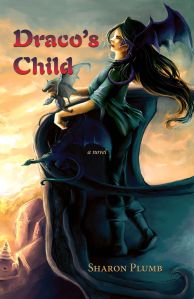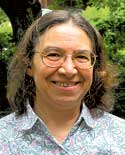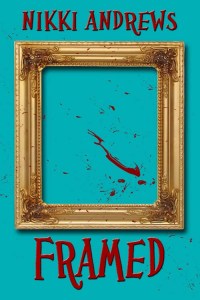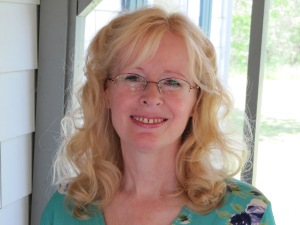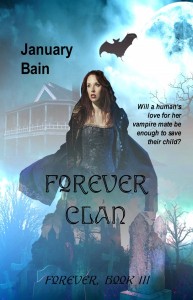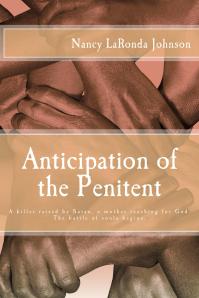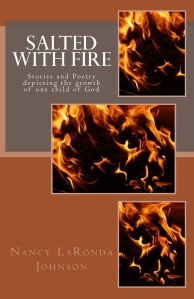 Olga Godim is a writer and journalist from Vancouver, Canada. When she doesn’t work on her fiction, she writes for a local newspaper and collects toy monkeys. She has over 300 monkey figurines in her collection. She reads like a bookaholic and posts book reviews online. She is bilingual and translates her favorite stories from Russian. Most of her fiction is fantasy: swords, magic, and talking squirrels. You can read some of her short stories and translations on her website.
Olga Godim is a writer and journalist from Vancouver, Canada. When she doesn’t work on her fiction, she writes for a local newspaper and collects toy monkeys. She has over 300 monkey figurines in her collection. She reads like a bookaholic and posts book reviews online. She is bilingual and translates her favorite stories from Russian. Most of her fiction is fantasy: swords, magic, and talking squirrels. You can read some of her short stories and translations on her website.
To date she has published 210 newspaper articles, 19 short stories (online and print magazines), and 2 novels. She has another novel under contract (May 2014).
***
SEVEN SPOTLIGHT QUESTIONS:
#1: What do you enjoy the most about writing?
Most writers love writing the first draft, riding the wave of inspiration. I do too, especially when the writing flows, but I also love revising and editing. When I write the first draft, I’m either in a writer’s block, trying to coax the story out of my reluctant brain, or in a rush, grabbing the most common words and phrases to get my bubbling ideas across. But when I revise, I’m free: no writing block, no rush. I play with words and expressions, search for the best ones, use a thesaurus, juggle paragraphs. I enjoy the process, even deleting pieces, when it improves the story. It feels like I’m a gourmet cook at a feast of words. I rejoice in every modifier, every clever turn of phrase, every quirky noun or lusty verb. I add a pinch of this and a dollop of that, and the resulting verbal brew becomes better.
I must confess, I keep everything I delete. Sometimes, I reuse those snippets of text in another story. I’m a hoarder, I don’t discard anything.
#2: What was your earliest writing experience?
I became a writer pretty late in life. By education, I’m a computer programmer. I worked with computers for over two decades. I’m also a daydreamer. I’ve always made up stories and played them in my head like a one-woman theatre, but I never told anyone about my daydreams and I didn’t write them down. To tell the truth, I was a bit embarrassed, afraid of ridicule. I was a professional woman, a single mom with two children. I never thought I could be a writer but I couldn’t get rid of my daydreams. I loved my dream-world’s heroes and heroines. Sometimes, they felt more alive and precious to me than living people.
In 2002, I got seriously ill. During my long recovery, my daydreams became more persistent. They swarmed me, they wanted to be told. I decided to be brave, stop resisting, and at last let my daydreams out. I started writing a story, the first writing I did since high school. I didn’t know if it was a short story or a novel. I didn’t know anything about writing or publishing. I just wanted to write. I still do. My stories are always with me, evolving, transforming, striving to get out—into a computer file or into a book.
I remember the exact month I started writing my first story – February 2003, when I returned to work, bought a dedicated laptop from my first paycheck, and opened the first empty DOC file to record my fiction. I can tell you (but sh-h-h, don’t tell anyone): my first story was terrible.
#3: Describe a day in your writing life:
For a freelance writer, priorities are everything. My priorities at the moment are:
1. Articles assigned by my newspaper
2. Online promotion for my published novels
3. New fiction writing
When I have an article coming, I do research on the internet, conduct interviews, and write the articles. I love interviews: they bring me in contact with so many fascinating people. When I don’t have an article, I spend time, sometimes hours, online—blogging, searching for reviewers for my novels, reading others’ blogs for inspiration, etc. Frankly, not my favorite occupation, but necessary in the current publishing atmosphere. I write fiction mostly in the afternoons, after I’ve consumed my three cups of coffee and replied to all my emails.
For some reason, I need at least a day to switch from article writing to fiction, so a day or two after I finished an article are totally wasted in regards to my fiction. In those days, I play computer games. Then, in the evenings, before bed, I read.
#4: What authors influenced you and how?
I write fantasy, so it won’t surprise you to learn that I read fantasy too. My favorite fantasy writer is Sharon Shinn. I enjoy her lyrical, magical tales, a blend of fantasy and romance. Her stories are full of light, without the darkness that’s dominated fantasy novels lately. I especially like her older Samaria series. In it, she writes about angels, and her concept of angels is unique in the genre. It has nothing to do with biblical angels and everything to do with the writer’s imagination. She created a charming race of angels in her stories, angels I believe in, despite my atheism. Her angels are arrogant and talented, decadent and dedicated to their duty. In short—alive. When I read Shinn’s books, my spirit soars. I want to write like she does.
My favorite sci-fi writer is Lois McMaster Bujold. Her hero, Miles Vorkosigan, is unmatched in the genre. He is a genius at solving cosmic problems. His adventures are always original, his obstacles gargantuan, and his solutions frequently funny. I wish I could create a protagonist as memorable and engaging as he is. Bujold is one of the very few writers I use as a self-teaching aid. Whenever I’m stumped in my own writing, I ask myself: how would Bujold handle such a conundrum? I open one of her books at random and page through a dialog or a narrative to see what she does. It often helps.
And then, there is Terry Pratchett. His satirical fantasy is joy with teeth. I don’t want to write like him—I can’t; satire is not my forte—but I’d like to show in my writing as many shades of gray in a human soul as he does.
#5: What are some things you learned to help with your success?
How to deal with a writer’s block:
I read once that the best way through the writer’s block is to write. Three sentences a day as a minimum. I found it good advice. You start with three sentences, but then you want to finish a paragraph. And then another thought sprouts in your head, and you want to write it down before it flees. Sometimes, it helps to switch projects, especially if you don’t know how to continue with your current one. A time away from a story might give you a fresh perspective.
How to create conflict in my stories:
The hardest character for me to write is a villain. I write mostly in the fantasy genre, and fantasy plots usually require a baddie of some sort or at least a strong antagonist. I have trouble with those guys. I don’t understand their thought process. Villains traditionally hanker for power, or world domination, or some such nonsense. But why would anyone want to rule the world, or even a village, is beyond me. It’s so much hassle.
On a more serious note: conflict is a challenge for me. I like my heroes. I don’t want them to suffer, but conflict is essential for fiction, so I have to go against my nature and invent problems for my characters, pit them against wicked odds. One of Kurt Vonnegut’s famous 8 rules of writing is “Be a sadist.” I’m still learning that trick.
#6: Describe your writing method:
I’m a plotter. I outline before I write. I need to know what happens with my characters before I type the first words of a story. My writer’s block often happens when I don’t know, when I wonder how my hero could solve this particular problem. Fortunately, sometimes a story takes over. I would be typing, following my rough outline, and then my hero would meet someone unexpected, have a chance conversation, and the story would veer into a side lane. Such detours often add richness to my characters, but I always return to my general outline in the end.
#7: Tips for aspiring writers:
The most important advice I could give: persevere. I have a favorite quote–my motto in writing:
“Success seems to be largely a matter of hanging on after others have let go.”
―William Feather
Don’t stop writing. Don’t give up. If one route to publication doesn’t work, try another. If nobody wants to read your novel, try to write for a newspaper or a magazine, even if they don’t pay. Try short stories. Try a blog. You need to convince strangers that what you write could be interesting for them. And write, write, write.
A writer friend I met online once said: “You can only consider yourself a professional writer after you’ve written one million words or more.” I agree. An average novel is about 60,000 to 100,000 words. If I toss in all the writing and re-writing I’ve done for all the short stories and novels, plus my newspaper articles, I’m somewhat over one-million-words now. And I’ve got two novels published by small publishers.
Self-publishing–I’m not enamored with it. I respect indie authors and I might try their approach some time, but overall, writing is a long process, and you can’t skip the apprenticeship phase. You can’t rush the skills; they come only from years of practice, like in music or in sport. Of course, there are exceptions, but they only underscore the rule: instant gratification doesn’t exist for writers.
I’m sorry to say this, but your first novel probably isn’t too good. It’s your school. My first novel was really bad. It’s still hidden in the bowels of my computer. It will never be published, although I have revised it at least ten times. I learned from it and moved on.
***
About Olga’s Book Almost Adept:
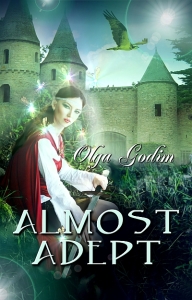
For the seventeen-year-old mage Eriale, magic is a source of joy, and she often uses magic to solve problems. Unfortunately, such solutions sometimes get out of hand. Her latest magical caper was a disaster, so she has to leave home in a hurry but she decides to turn her shameful fleeing into a quest to prove her Adept potential. She expects a glittering foreign escapade but ends up in Grumesh, the land rife with treachery and violence. A local courier Kealan becomes her only friend and ally. Together, they survive an explosion, a treacherous incarceration, and a daring escape. Sparks of interest ignite between them, but before Eriale can explore her attraction to Kealan, she discovers blood magic running amok in the city. Her priorities must change. As an aspiring Adept, she is duty-bound to find and eliminate the blood mage of Grumesh. She can’t allow her budding romance to distract her, or the blood magic will taint the entire land. No matter the cost—her life or her heart—she can’t let the vile mage win.
Excerpt (a conversation between the two protagonists, Eriale and Kealan):
“Tell me about magic, Eri,” Kealan prompted. “Why are you hungry afterwards?”
“Well.” She gazed at the tourmaline in her hands. “Magic is energy.”
“What can you do with it?”
“Anything.” She grinned. “Anything that can be done without it.”
“What do you mean?”
“For example, if you want to carry a load of crystals,” she pointed to the wagons, where the guard still snored peacefully, “to the other side of the kingdom, you can do it using a horse and a wagon. And lots of time. Or you can employ a mage to transport your cargo much faster. The horse would spend energy pulling the wagon. It would need to eat and sleep to replenish its strength. So would a drover. A mage is no different. He compacts the time and space needed for transportation, but his use of energy is multiplied by a hundred. He uses the same amount of energy for the same job, but he pulls this energy out of himself. Of course mages are always hungry and tired after working magic.”
“But where does your magic come from?”
“My body generates it.” She glanced askance at Kealan and pointed at her breasts. “Somewhere here.”
“Oh. So, if my body doesn’t generate magic, I can’t learn to use it? You know, spells or something?”
She shook her head vehemently. “It’s an innate ability, like sight or hearing. Some people have it; others don’t. But you need to study hard to be able to control it.”
“What if a mage wants to use more magic than his body generates?”
“He can’t.” Her expression clouded. “Unless he resorts to blood magic. Then he can, if he extracts energy from the pain and death of others. It’s easy magic, but…it’s dirty. Blood magic corrupts a mage’s soul.” She shivered. “It makes me want to puke, like poison.” She hugged her knees and stared into the distance.
“Sorry I asked.” Kealan didn’t like her looking so forlorn. What could he say to lift her spirit? “What about illusions? You can’t create illusions without magic.” He recalled the illusion of the mountain cats he had employed on his way to Varelia.
“Illusions are extra,” she said serenely, her distress forgotten. “They’re entertainment. I like making illusions. It’s like painting on the air with magic.”
“What if something can’t be done without magic? Like turning a man into an animal? Is it possible with magic?”
Eriale snickered. “Why? Do you want to turn someone into a frog?”
“No. I heard a rumor that some crazy mage at the royal court turned a duke into a goat. I thought it was a hoax; they were just pulling my leg, right?”
“Ah.” Eriale sighed. She kept silent for so long, he thought she wouldn’t answer at all, when she stirred. “You can transform one living being into another, but it’s a very complicated spell and a brutal one,” she said quietly. “It takes lots of power and lots of knowledge. You have to learn every detail of the anatomy of your original creature and the target creature. Otherwise, you’ll create a monster. And the overall masses of both creatures should be the same. You can’t turn a man into a tiny frog. Where would the extra mass go? Unless you want a frog the size of a man.”
Kealan grunted. His imagination leaped into overdrive, visualizing a possible result of such a transformation. “A frog the size of a man. Should be charming.”
She giggled. “There’s another solution. I could use a transportation spell. You know, find a frog in a nearby pond, transport the man there and the frog here. It’s a kind of a switcheroo. Done properly, it only takes a moment. For a bystander, it would look like a transformation, but it’s a trick, really.”
***
Buy Almost Adept:
Burst (Publisher): http://burstbooks.ca/product.php?id_product=118
Amazon http://www.amazon.com/Almost-Adept-Olga-Godim-ebook/dp/B00HPPNRUI/ref=sr_1_1?ie=UTF8&qid=1389036660&sr=8-1&keywords=olga+godim
***
Also by Olga—Lost and Found in Russia, a women’s fiction novel availalbe from Eternal Press:
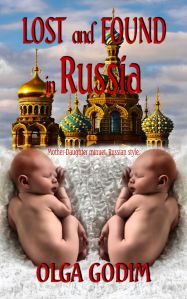
After the shocking revelation that her daughter was switched at birth 34 years ago, Canadian scholar Amanda embarks on a trip to Russia to find her biological daughter. Intertwined with the account of Amanda’s journey is the story of Sonya, a 34-year-old Russian immigrant and a former dancer, currently living in Canada. While Amanda wades through the mires of foreign bureaucracy, Sonya struggles with her daughter’s teenage rebellion. While Amanda rediscovers her femininity, Sonya dreams of dancing. Both mothers are searching: for their daughters and for themselves.
***
Olga’s words about this book:
When I was young and poor, I often thought: what if someone showed up at my door and said that I had been switched at birth, and my birth family was rich. And they’re looking for me. What would I do? What would my mother do? And – here was the tricky question – what would my other mother do? Would she want and love me as much as the mother who raised me? From that daydream sprouted the idea for this book – a story of a mother who discovers after 34 years that her daughter was switched at birth, by mistake.
***
Buy it here:
Eternal Press: http://www.eternalpress.biz/book.php?isbn=9781615728770
Amazon: http://www.amazon.com/Lost-Found-Russia-Olga-Godim/dp/1615728783/ref=sr_1_1?ie=UTF8&qid=1362966343&sr=8-1&keywords=olga+godim
Barnes & Noble: http://www.barnesandnoble.com/w/lost-and-found-in-russia-olga-godim/1114480110?ean=9781615728787
***
Connect with Olga:
Olga’s website: http://olgagodim.wordpress.com
Olga’s twitter: @OlgaGodim
Other places to find her:
Goodreads: https://www.goodreads.com/author/show/6471587.Olga_Godim
Worlds of the Imagination: http://worldsoftheimagination.wordpress.com/
Silk Screen Views: http://silkscreenviews.wordpress.com/
Book Likes: http://olgagodim.booklikes.com/
***


